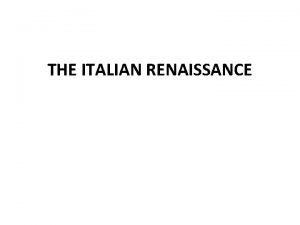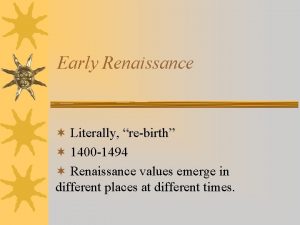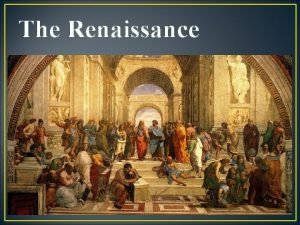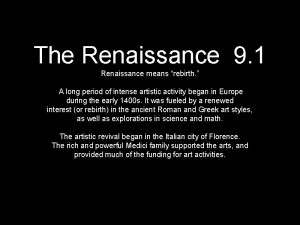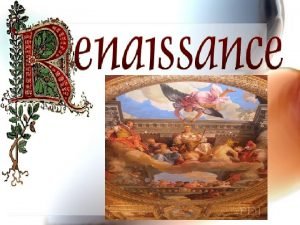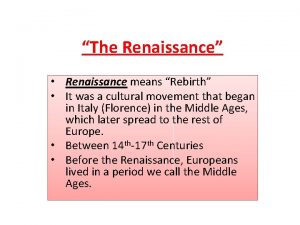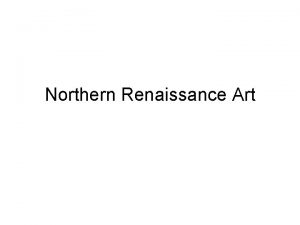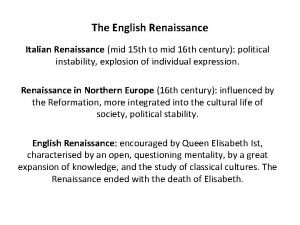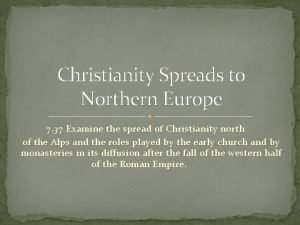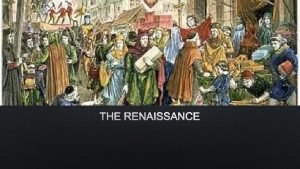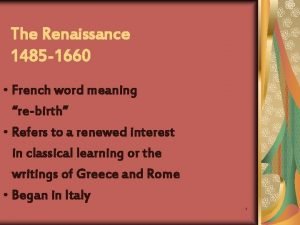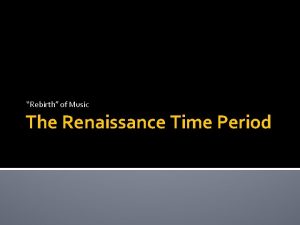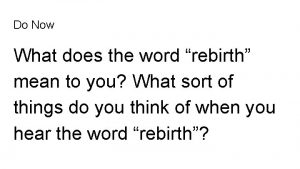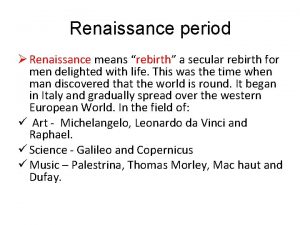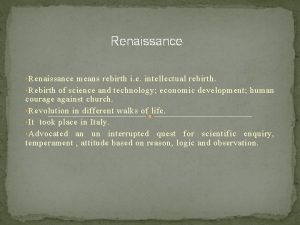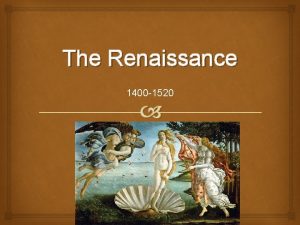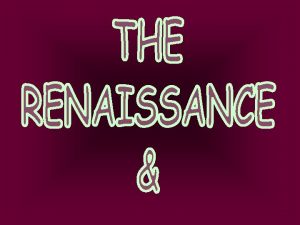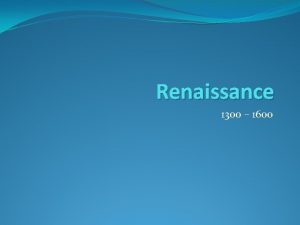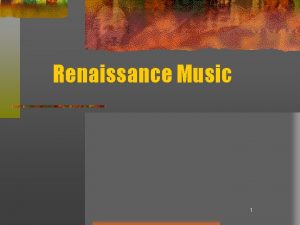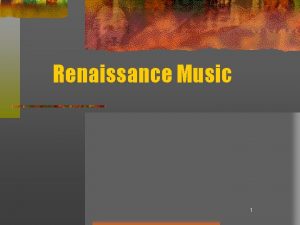The Italian Renaissance Renaissance Means rebirth Period of

The Italian Renaissance

Renaissance • • • Means rebirth Period of renewed interest in art & learning Started in Italy 1350 -1550 VIPs- Ninja Turtles & others Important city-states: – Milan, Venice, Florence

Italian Wars • France was attracted to the riches of Italy, so they invaded • Italy asked Spain for help, and they said yes • For 30 years, Spain & France fought for control • They attacked Rome; the Spanish won & remained a dominant force in Italy

Machiavelli • Wrote The Prince, which taught how to get and keep political power • First to abandon morality in analyzing politics • His opinion– A prince’s attitude toward power must be based on the understanding that humans are selfcentered – A prince acts on behalf on the state and must be willing to let his conscious sleep

Nobility – 2 -3% of population – Politicians and advisors to king – Born, not made – Expected to have character, grace, & talent – To be a warrior, educated, and of the arts – Follow code of conduct & show off achievements – Aim to serve prince

Renaissance _ _ _ _ • Nobility • Peasants & Townspeople • Family & Marriage

Peasants & Townspeople • 80 -90% of European population • Peasants became free • Townspeople were merchants and artisans – Patricians- wealthy from trade, industry, banking – Burghers- shopkeepers, artisans, guild masters – Poor workers & the unemployed (lots of poverty)

Family & Marriage • Great source of security • Arranged marriages • Popcorn heading p. 163

Humanism • Key intellectual movement of Renaissance • Based on the study of the classic works of ancient Greece & Rome • Grammar, rhetoric, poetry, moral philosophy, history

Vernacular Literature • Vernacular- the language spoken in their own regions • Italian Dante & his Divine Comedy • English Chaucer’s The Canterbury Tales

Education • Based on humanism • Liberal studies– – – – Moral philosophy Rhetoric Grammar Poetry Math Astronomy Music • PE • Goal- to create complete citizens • Females- popcorn last P, 1 st column p. 166

Art • Imitated nature • Humanism- humans became the focus of attn • New techniques – Frescos – Movement & human anatomy – Sculpture – Architecture – All wanted to reflect a human-centered world in their art

Some Renaissance VIPs • • Leonardo Da. Vinci- popcorn, p 168 Donatello- sculptor Raphael- painter Michelangelo- painter, sculptor, architect
- Slides: 13
